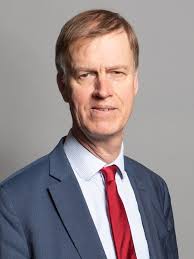Stephen Timms – 2022 Speech on the Government’s “Plan for Growth”
The speech made by Sir Stephen Timms, the Labour MP for East Ham, in the House of Commons on 19 October 2022.
I am very pleased to follow the hon. Member for Hazel Grove (Mr Wragg), and I pay tribute to him for the frankness of the personal remarks with which he opened his speech. I must say that the whole speech contained a great deal of good sense, which I hope his hon. Friends on his Front Bench will have heard and paid attention to.
Christians on the Left organises a church service each year on the Sunday morning when the Labour party conference begins, and the preacher this year was the Archbishop of York. In the very fine address that he gave on that occasion, he said:
“Increasingly, the safety net in our nation is a foodbank, where more and more people have to go to get what our economy itself fails to provide.”
He is absolutely right: something fundamental has gone wrong in our economy. For many people, including those in employment, the economy does not work. More and more are turning to food banks to survive. Some 61,000 food parcels were distributed by the Trussell Trust’s food banks in 2010-11, whereas the number was 2.5 million in 2020-21—a fortyfold increase in a decade.
In the leadership election campaign in the summer, the Prime Minister acknowledged her party’s failure on economic growth, and she was absolutely right to do so. The new Chancellor told us on Monday that the record on growth had been very good. That is one of many things that he and the Prime Minister seem to disagree about, but on this one, I am definitely with the Prime Minister. As my hon. Friend the Member for Leeds West (Rachel Reeves) often points out, we are a high-tax economy because we have been a low-growth economy.
Last April social security benefits were raised by 3.1%, even though inflation was nearly 10%.
That was justified on the basis that the regular formula for uprating benefits uses the figure for inflation from the previous September. That formula has, on several occasions, been disapplied since 2010, but never in the interests of the poorest families in the country—only ever to their disadvantage. This year, the formula was applied, piling on yet another real-terms cut in benefits, reducing them to the lowest real-terms level for more than 30 years. The then Chancellor and the then Prime Minister implicitly recognised that unfairness and promised to use the same formula next April, delivering, we have learned today, a 10.1% rise.
The current Chancellor must now decide whether to keep that promise to the poorest families in the country during a cost of living crisis. The Minister, in his opening remarks, referred to protecting the vulnerable. I really hope that he meant that, because those families have so often had a kicking from this Government over the past 12 years. If that happens again, dependence on food banks will get yet another large boost as thousands more people have to turn to them to survive—on top of the 700,000 households who did so in 2019-20. The food banks themselves are struggling now because donors cannot afford to give as much. Mass food bank dependence is a potent symptom of the economic failure of the past 12 years.
Yesterday, representatives from Muscular Dystrophy UK came to Parliament to spell out the hardship from rising prices facing the people they support, because, for example, those people depend on machinery—ventilators—that have to be permanently switched on and powered. On Monday, the Chancellor spoke of compassionate conservatism. If that is not just a vacuous slogan, those people’s needs must be recognised in the benefit uprating decision that could be announced on Monday week.
The benefit cap was introduced 10 years ago and was supposed to reflect median earnings. It was changed once in 2016, when it was cut, and it has never been increased. This time, surely, it must be. If it is not, at a time when inflation is over 10%, thousands more people will crash into the cap next April and be forced to depend on food banks, heaping yet another economic failure on the catastrophic blunders, as the hon. Member for Hazel Grove rightly pointed out, of the past few weeks.


